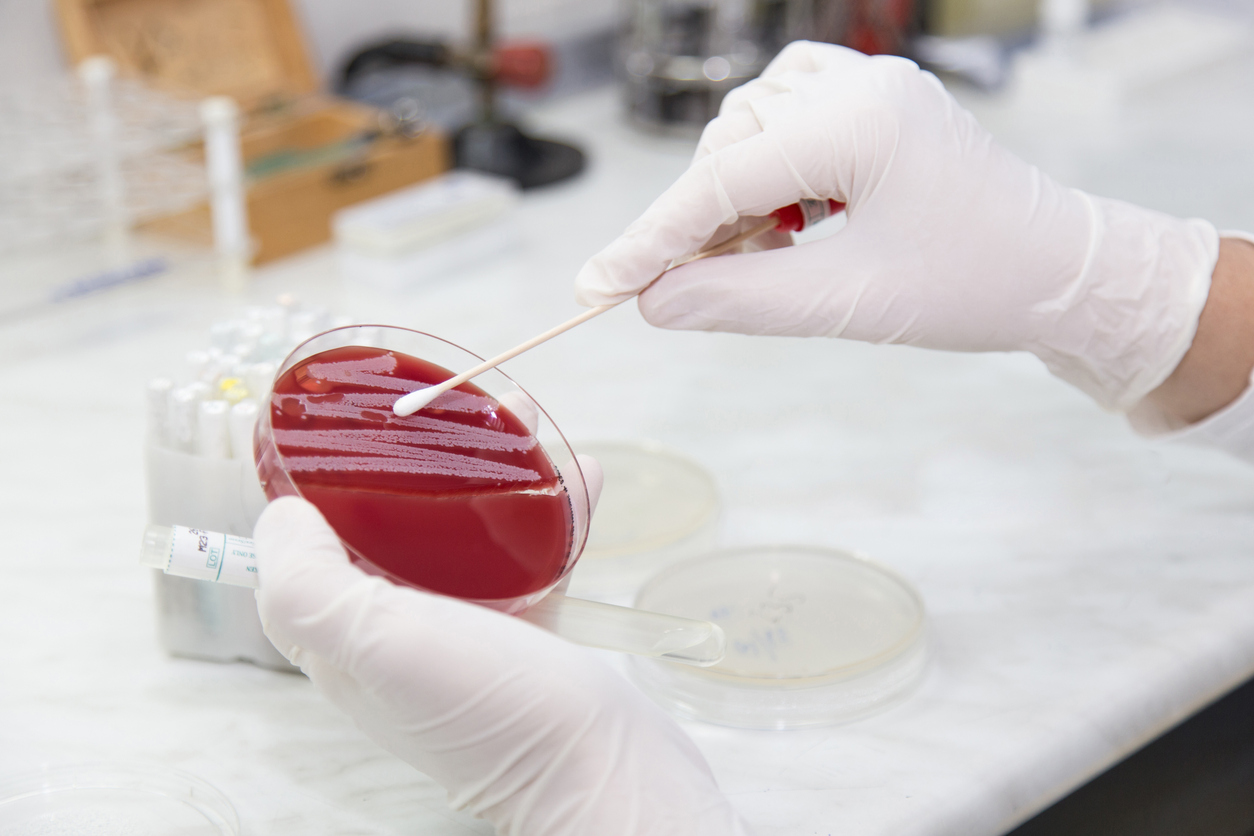Research led by scientists in NUI Galway has identified a new way to make MRSA vulnerable to antibiotic treatment. The MRSA superbug is resistant to penicillin-type antibiotics, making infections difficult to treat. The microbiology research team discovered that when a gene called sucC in MRSA is mutated, it leads to the build-up of a molecule called succinyl-CoA. This increase in succinyl-CoA can change numerous proteins in MRSA, which makes the bacteria more sensitive to antibiotics again.
The study has been published in the flagship journal of the American Society for Microbiology, mBio, and was funded by the Health Research Board and the Irish Research Council. The research was carried out by the Discipline of Microbiology department at NUI Galway in collaboration with the Pacific Northwest National Laboratory and the University of Nebraska Medical Centre in the US, and the University of Umeå in Sweden.
Summarising the discovery, Dr Chris Campbell, co-first author and NUI Galway microbiology PhD graduate, said: “A mutation that affected the way in which MRSA uses glucose to fuel growth unexpectedly switched off antibiotic resistance.”
Co-first author and NUI Galway microbiology PhD student Claire Fingleton explained: “If we can find other ways to increase succinyl-CoA in MRSA, for example by developing drugs that have the same effect, it opens up the possibility that MRSA infections can be more easily treated with antibiotics. It would mean that penicillin-type antibiotics, which are currently ineffective for MRSA infections, could become successful once more in treating this superbug.”
Finding ways to make MRSA sensitive to penicillin-type antibiotics again is a high priority in addressing the antimicrobial resistance crisis, said the researchers. “Penicillin-type antibiotics remain among the safest and most effective treatment options for bacterial infections, but unfortunately many bacteria, including MRSA, are now resistant to these drugs,” according to study co-author and NUI Galway microbiology postdoctoral fellow Dr Merve Zeden.
Senior author of the study and Professor of Infectious Disease Microbiology at NUI Galway, Prof Jim O’Gara, said: “Most people have been prescribed penicillin-type antibiotics at one time or another for the treatment of a bacterial infection. Ensuring that this class of antibiotics remains part of our arsenal of drugs against bacterial infections is imperative.”
Antimicrobial resistance infections are predicted to cause more deaths than cancer by 2050. In the US, MRSA ranks as the sixth-most common cause of bacterial infection and number-one in terms of mortality. Understanding why MRSA and other pathogens are resistant to antibiotics is an essential prerequisite to finding better therapeutic approaches for antimicrobial resistance infections.
To read the full study in the mBio journal, visit: https://journals.asm.org/doi/10.1128/mBio.00530-21.







